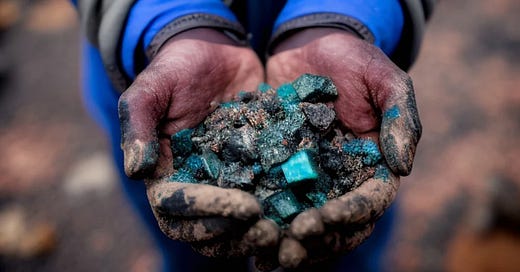The Hidden Costs of E-Vehicles
We should be asking ourselves one very big question. Will what we gain offset what we lose in the process?
Saturday, August 3rd, 2024
About two years ago, as my Mom was passing away from cancer, I discovered a Korean show called “Alchemy of Souls.” That led to my current love of and fascination with all things Korean, my wonderful friendship with my Korean tutor, and my delicious, hot summer day lunch of “Cold Noodle Soup,” also known as 냉면!
A couple days ago, before flying to Korea (I am soooo jelly!), my Korean Tutor mentioned a favorite band of his would be touring the USA sometime next year, and I went looking for the tour dates. Along the way, I encountered this news story, by Sarah Chea, writing for Korea JoongAng Daily: 21 injured after Mercedes EV explodes in parking lot.
If a combustion engine vehicle blows up, once the fuel and seating material is burned up, the fire dies down pretty quickly all on its own.
This fire took eight (8) hours to be extinguished by a large group of professional fire fighters. Yes — eight hours.
The explosion of this one vehicle occurred at 6:15am when the garage was basically empty, but the eight hour inferno resulted in no less than twenty-one (21) apartment residents being hospitalized for smoke inhalation, 140 cars being damaged, and the fire even caused a power outage! One car did all that. How? It was an E-vehicle.
I’m not offering an opinion today, because I still have too much to learn.
What I do want to do is remind everyone that the shift from combustion engines to E-vehicles is far from a 100% good idea. In fact, there are several reasons to consider it a bad idea that shouldn’t be pursued at the level we’re seeing, if at all.
This is fine. Uncertainty is not a problem. What is concerning to me is the number of people who are forming super strong “pro-electric car” opinions, largely or entirely based on savvy marketing and promises offered by politicians.
THAT is a problem.
There are many problems associated with the political push toward replacing combustion engine vehicles with e-vehicles, and I’m still learning. Today, I’ll just share briefly about one of the “unintended negative consequences.”
Are Rare Earth Elements actually rare? No. But, rareness isn’t the problem.
"The 'troublesome earths' would have been a better name," Paul Ziemkiewicz, director of the West Virginia Water Research Institute, told Live Science. "The problem is, they're just not that concentrated in one place.
The above hyperlinked article does a very good job of summarizing how and why mining “Rare Earth Elements” is challenging and not especially cost effective. When we consider that “mining” is one of the most toxic and environmentally damaging human activity, the fact that “Rare Earth Elements” require excessive effort, energy, land use, and technology to separate them out from the surrounding soil — should be concerning.
COBALT — COBALT — COBALT
In addition to boosting demand for lithium, the electromobility boom is expanding demand for other elements critical to the energy transition, including cobalt. Most of us have seen the horrific abuse associated with Cobalt mining operations in the Congo.
Chile, however, aims to process Cobalt with less environmental and human damage. According to Qué Pasa magazine, Chile has significant quantities of this mineral in its mining tailings (tailings or tails are the materials left over after the process of separating the valuable fraction from the uneconomic fraction of an ore.) If successful, this could make Chile the world’s second-largest producer, displacing Indonesia.
However, the Democratic Rebublic of Congo is currently producing 145,000 metric tons per year, with Indonesia claiming second place with a mere 9,500 metric tons. Raising the question, how much of a dent will Chile put in the human suffering and ecological disaster being created by Cobalt mining in the DRC?
Why do we care?
Simple — you can’t read my Substack, use Google Maps, check your email or watch Netflix on your phone without it! And…more to the point of this Substack:
Which brings us back to the question: Will what we gain offset what we lose in the process?
I don’t know. What do you think?








